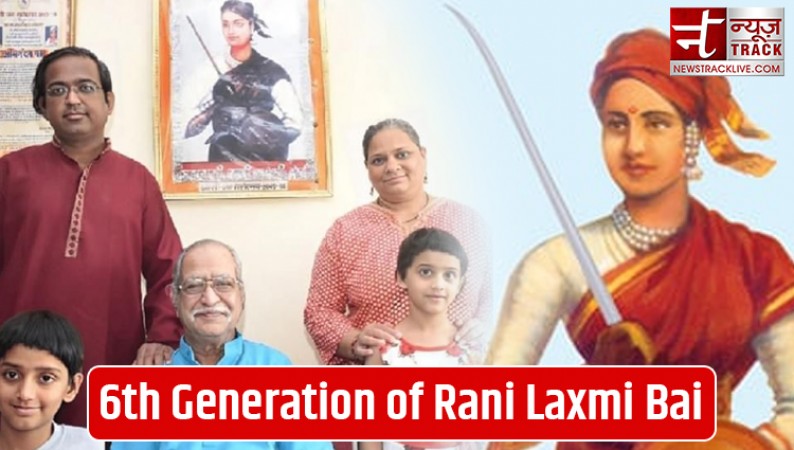
One of the highlights of the history we share as Indians is the image of the Rani Laxmi Bai riding a horse with her 8-year-old son Damador Rao tied on her back with a cloth battling Britishers is sketched in everyone’s mind.
However, following the country’s Independence, no government ever tried to seek an answer to the question… what happened to the Prince of Jhansi after Laxmibai’s martyrdom? Only a handful know that the Queen’s son Damodar Rao and his next 5 generations lived an anonymous life in Indore that prides itself on being called Ahilya Nagari.
Rani Laxmi Bai, who was one of the leading figures of the Indian Rebellion of 1857 and became a symbol of resistance to the British Raj for Indian nationalists, and a woman who is still talked about in the history books and praised for her bravery, is remembered yet her family lives in anonymity and poverty. With no government or public help forthcoming, the first two generations of Queen’s descendants spent their life in rented houses in abject poverty. No effort was ever made to locate them.
In actuality, the Queen's lineage continued to reside in the city until 2021. Later, they relocated to Nagpur, where the sixth generation descendent now works for a software business and leads a more secretive lifestyle. The family in hopes of keeping the essence of Rani Laxmi Bai alive, added the designation Jhansiwale to their name, maintaining their connection to Jhansi.
Software engineer Yogesh Arun Rao Jhansiwale (44) is the sixth generation member of Queen Laxmibai’s family. He currently lives in Nagpur with his wife Preet and two kids Preeyesh and Dhanika.
Arun Rao Jhansiwale, Arun’s father, also resides with him. Arun Rao, a retired assistant engineer from the former MP Electricity Board (MPEB), has a residence in Indore's Dhanwantri Nagar.
Damodar Rao took his last breath on May 20, 1906, at the age of 57, leaving behind his son Laxman Rao Jhansiwale, who was given a pension of Rs 200 per month by the Britishers. After the country attained independence on August 15, 1947, the then government asked Laxman Rao to vacate the house in the Residency area. The descendants of Rani Laxmibai had no option but to shift to a rented house in the Peergali area of Rajwada, Indore.
Queen of Jhansi’s grandson worked as a freelance typist in the district court. Due to extreme poverty, the family often slept with an empty stomach, which brings us to the question of what we have given back to the Queen who tried to protect her Kingdom. Laxman left this world in extreme poverty in 1959 leaving behind his son Krishna Rao Jhansiwale and his daughter Chandrakanta Bai.
Krishna Rao, the great-grandson of the Queen, worked as a steno-typist in Hukumchand Mill in Indore. He used to receive a pension of Rs 100 per month from the Central and UP government. After spending his entire life in the same rented house, Krishna Rao died, in 1967.
After his demise, the Central and the UP government discontinued the pension of the descendants of the Queen. His son Arun Rao Jhansiwale was an engineer and joined MPEB. In 1994, he purchased a house in Dhanwantari Nagar in Indore. The family waited for five generations to own a house and live in a stable house after the Queen left Jhansi with her son Damodar Rao.
CM Yogi Adityanath gets big relief from SC
Suniel Shetty on Boycott Trends, People are not coming to theatre…
Athawale's statement on '50 Khokhe, Ekdum OK,' know what he said?